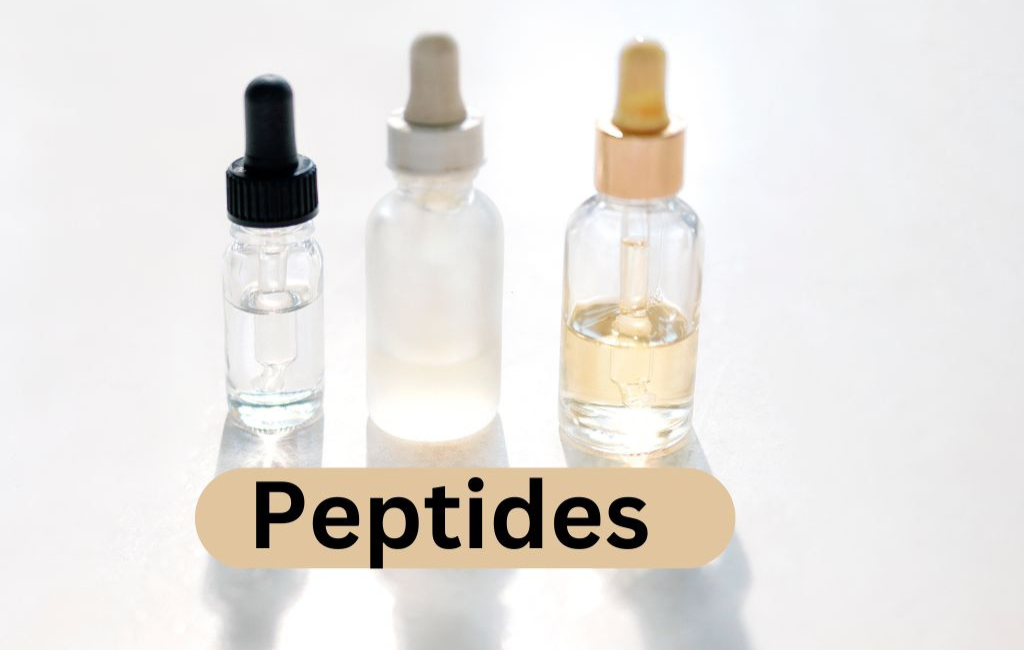
Healthy Aging Essentials: Try Peptides
Aging is a natural process that everyone experiences, but the quest for maintaining vitality and health as we age is a common goal. One emerging area of interest in the field of healthy aging is the use of peptides. These small proteins have shown promise in supporting various aspects of health and wellness. This article explores the potential benefits of peptides for healthy aging, backed by research and real-world examples.
Understanding Peptides
Peptides are short chains of amino acids, which are the building blocks of proteins. They play a crucial role in various biological functions, including hormone regulation, immune response, and cell signaling. Unlike larger proteins, peptides are more easily absorbed by the body, making them an attractive option for therapeutic use.
Types of Peptides
Peptides can be classified into several categories based on their functions:
- Hormonal Peptides: These include insulin and growth hormone, which regulate metabolism and growth.
- Neuropeptides: Such as endorphins, which influence mood and pain perception.
- Antimicrobial Peptides: These help in fighting infections by disrupting the membranes of bacteria.
- Signaling Peptides: Involved in cell communication and repair processes.
The Role of Peptides in Healthy Aging
Peptides have gained attention for their potential to support healthy aging through various mechanisms. Here are some key areas where peptides may offer benefits:
Skin Health
As we age, the skin loses collagen and elasticity, leading to wrinkles and sagging. Peptides like collagen peptides have been shown to stimulate collagen production, improving skin texture and reducing signs of aging. A study published in the Journal of Cosmetic Dermatology found that participants who took collagen peptides experienced significant improvements in skin hydration and elasticity.
Muscle Mass and Strength
Loss of muscle mass, known as sarcopenia, is a common issue in older adults. Peptides such as growth hormone-releasing peptides (GHRPs) can stimulate the release of growth hormone, which plays a role in maintaining muscle mass and strength. Research in the Journal of Clinical Endocrinology & Metabolism demonstrated that GHRPs could enhance muscle growth and improve physical performance in older adults.
Cognitive Function
Cognitive decline is a concern for many as they age. Peptides like cerebrolysin have shown potential in supporting brain health. A clinical trial published in Alzheimer’s & Dementia revealed that cerebrolysin improved cognitive function in patients with mild to moderate Alzheimer’s disease, suggesting its potential for broader cognitive support.
Immune System Support
The immune system weakens with age, making older adults more susceptible to infections. Thymosin alpha-1, a peptide derived from the thymus gland, has been studied for its immune-boosting properties. Research in the International Immunopharmacology journal indicated that thymosin alpha-1 could enhance immune response and reduce infection rates in older individuals.
Real-World Examples and Case Studies
Several case studies and real-world examples highlight the potential of peptides in promoting healthy aging:
- Case Study: Skin Rejuvenation: A 55-year-old woman used a topical peptide serum for six months. She reported noticeable improvements in skin firmness and a reduction in fine lines, attributing these changes to the peptide treatment.
- Athlete’s Experience: A 60-year-old marathon runner incorporated collagen peptides into his diet. Over a year, he observed improved joint flexibility and reduced post-exercise soreness, allowing him to maintain his training regimen.
- Cognitive Enhancement: A clinical trial involving 100 participants with mild cognitive impairment tested the effects of cerebrolysin. After six months, participants showed significant improvements in memory and attention compared to the placebo group.
Safety and Considerations
While peptides offer promising benefits, it’s important to approach their use with caution. Here are some considerations:
- Consultation with Healthcare Professionals: Before starting any peptide regimen, consulting with a healthcare provider is advisable to ensure safety and appropriateness.
- Quality and Purity: The market for peptides is not strictly regulated, so choosing high-quality, reputable products is essential.
- Potential Side Effects: Some peptides may cause side effects such as allergic reactions or hormonal imbalances. Monitoring and adjusting dosages under medical supervision can mitigate these risks.
Conclusion
Peptides present an exciting avenue for supporting healthy aging, with potential benefits for skin health, muscle maintenance, cognitive function, and immune support. While research is ongoing, the existing evidence and real-world examples suggest that peptides could play a valuable role in promoting vitality and well-being as we age. As with any health intervention, informed decisions and professional guidance are key to maximizing benefits and minimizing risks.